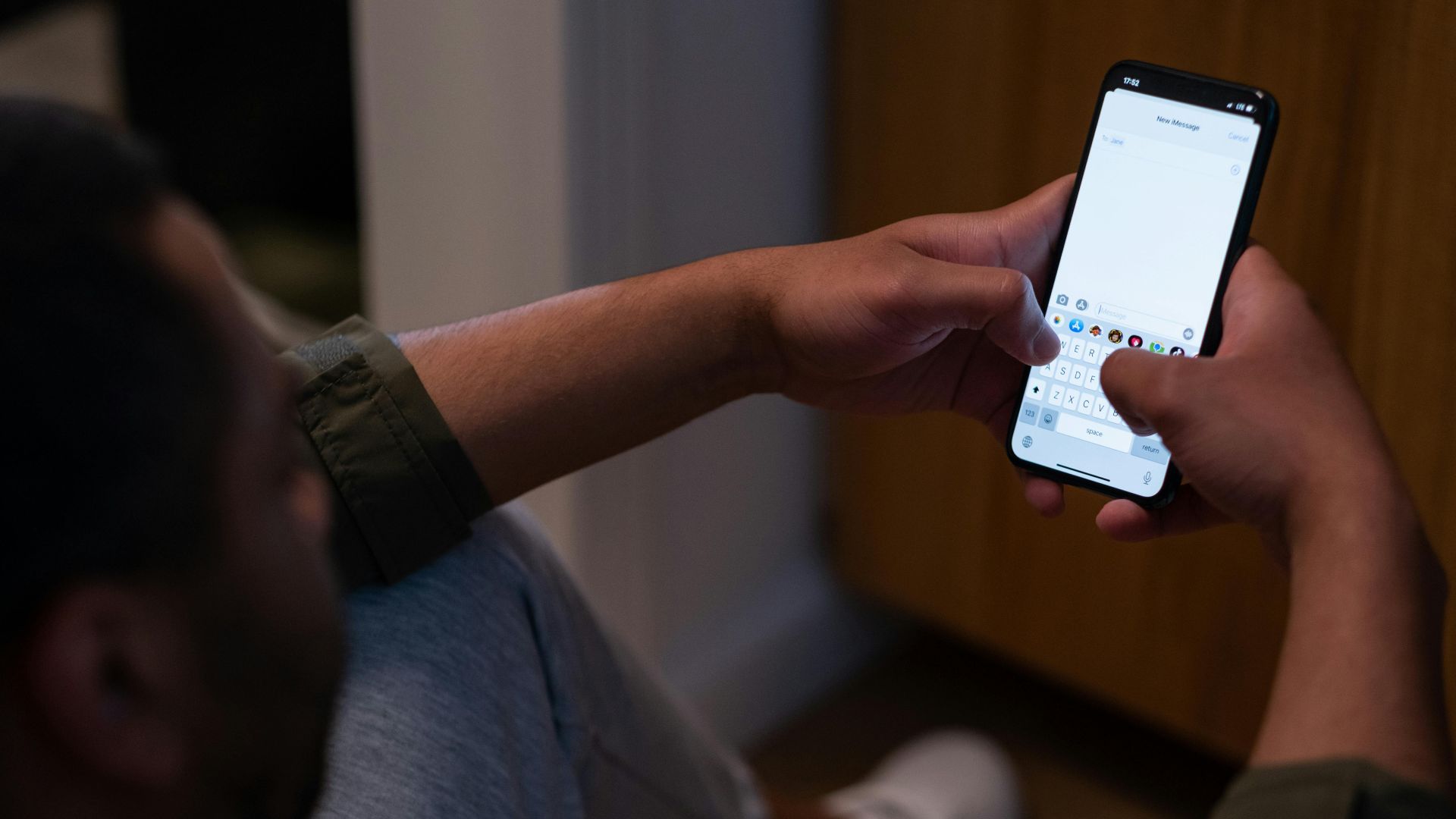Reality Vs. Fear
Notice how your thoughts can turn a simple grocery store trip into evidence of an affair? Your brain is wired to protect you, which means it sometimes sees danger everywhere. The challenge is figuring out when those protective instincts are actually protecting you versus when they're just creating unnecessary drama. To begin with, let's examine the signs that something might actually be amiss.
1. Sudden Shift In Communication Patterns
Your partner's communication style might change subtly at first. A previously chatty spouse could become reserved, skip evening conversations, or respond differently to routine questions. These alterations in daily dialogue often precede larger relationship issues and shouldn't be ignored.
2. Defensive Reactions To Routine Questions
Routine questions shouldn't make someone defensive or angry. If your lover lashes out at simple inquiries about their day, they may be hiding something. Their hostile responses serve as a shield against potential discovery. Notice if they treat innocent questions as accusations or threats.
3. Increased Secrecy Around Personal Items
The way someone guards their belongings can reveal hidden truths. A partner who previously shared everything might start keeping their phone close. They might even become defensive about their personal items. These protective behaviors generally mask concealed activities.
4. Withdrawal From Shared Activities
A noticeable retreat from shared social connections is usually linked with deeper relationship issues. People who consistently skip family gatherings and decline group outings may be hiding something significant. Their excuses become vague, and they suddenly prefer solitude over activities they previously enjoyed together.
5. Changes In Physical Intimacy
Physical intimacy serves as a relationship barometer. When partners conceal things, they frequently withdraw from affectionate touches, passionate moments, and casual displays of love. These changes appear suddenly and persist without valid reasons. Their body language may also become stiff or evasive.
6. Cloudy Responses To Direct Questions
When direct questions receive cloudy responses, relationship experts note this as a warning sign. Partners who dodge conversations or steer discussions in different directions may be concealing important information. Clear communication should be the norm in healthy relationships.
7. Unexplained Financial Activity
Sudden changes in spending habits can indicate hidden activities. This might include unexplained charges, cash withdrawals, new accounts, and reluctance to discuss finances when you previously shared financial transparency. Pay attention to their reactions when bills start to arrive.
8. Altered Digital Behavior
You must also pay attention to unexpected shifts in your partner's technology habits. Someone with secrets will usually try to increase their digital privacy measures. Red flags include frequently changing passwords. Similar behaviors merit further discussion.
9. Unexplained Changes In Routine
Watch for unexplained modifications in your partner's daily schedule. Regular activities that once followed predictable patterns may change without reasonable justification. Late work nights, new outside interests, or extended absences from home could hint at some underlying secrets.
10. Unexplained Absences Or Time Gaps
A telltale sign of secrecy emerges when your partner can't account for chunks of missing time. Random disappearances become more frequent, often justified with vague excuses about errands or work. What used to be transparent daily routines now contain suspicious gaps and missed appointments.
 Photo By: Kaboompics.com on Pexels
Photo By: Kaboompics.com on Pexels
Now it's time to examine those moments when your mind is basically writing fiction.
1. Routine Personal Boundaries
Personal boundaries in relationships are completely normal and healthy. Your partner's need for private time or space doesn't mean they're hiding secrets. It is said that maintaining individual boundaries strengthens relationships. Trust grows when partners respect each other's personal limits.
2. Having Independent Friendships And Activities
Your partner's separate friendships and hobbies don't indicate secrecy or relationship problems. Charlie Health experts confirm that overanalyzing their independent activities only fuels unnecessary worry. Strong relationships allow space for individual interests while maintaining trust and mutual support.
3. Natural Mood Fluctuations
Those changing moods often stem from work stress, health issues, or daily challenges rather than relationship problems. Overthinkers frequently misinterpret these natural fluctuations as personal rejection. A quiet or withdrawn partner just needs space to recharge. Understanding this helps build stronger connections.
4. Temporary Distraction During Busy Periods
Life gets hectic sometimes, making your lover seem preoccupied or distant. Professional commitments, deadlines, and daily pressures can consume mental energy. Many times, workplace stress tends to spill into personal life. Remember that temporary distraction generally stems from external demands.
5. Normal Variation In Communication Styles
Different texting speeds and emotional expression styles are perfectly normal between partners. After all, communication preferences vary widely based on personality type. While one person might love sharing memes and quick updates, another may prefer meaningful face-to-face talks. These contrasts shouldn't raise red flags.
6. Misreading Neutral Responses As Evasive
When your partner gives short answers, it's natural to wonder if something's wrong. But counseling experts emphasize that brief responses rarely indicate hidden problems. Many people default to simple replies when stressed or occupied. Instead of assuming evasiveness, consider having an honest talk.
7. Expecting Constant Transparency
The desire to know everything about your better half can result from anxiety rather than love. Healthy relationships balance openness with personal space. Your partner having private thoughts or moments doesn't mean they're hiding something. Trust grows when both people respect each other's boundaries.
8. Normal Digital Privacy Preferences
A reasonable level of digital privacy between partners is absolutely normal. While anxiety might make password-protected phones seem suspicious, maintaining personal space in the digital world is as natural as having private conversations with friends or keeping a personal journal.
9. Natural Changes In Routine
Life naturally creates changes in people's routines and habits. Their new schedule or different daily patterns don't automatically signal secrecy. It has been proven that overthinking these shifts can damage relationship trust. Most routine changes simply reflect personal growth and life's natural evolution.
10. Family Pressures
External stressors like demanding relatives, family conflicts, or difficult situations with parents and siblings can impact your lover’s mood and behavior. What seems like secretive or distant behavior is just them processing challenging family dynamics that have nothing to do with you personally.



























